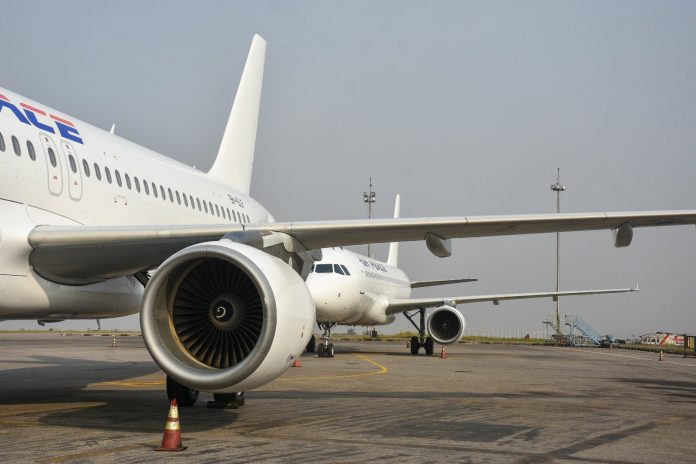Despite the recent addition of nine new planes to Nigerian airlines’ fleets, airfares remain steep, forcing consumers to weigh alternative travel options as the Christmas season approaches.
Although airlines have bolstered their fleets in preparation for increased demand, high operating expenses have kept ticket prices elevated, raising concerns over the long-term sustainability of the country’s aviation sector.
Industry sources indicate that, while airlines like United Nigeria Airlines, Xejet, Ibom Air, and Air Peace have recently expanded their fleets, the expected drop in ticket prices has yet to materialise. Market experts point to persistent cost pressures, such as high foreign exchange rates and surging aviation fuel prices, as significant contributors to the fare hikes.
Obiora Okonkwo, Chairman and CEO of United Nigeria Airlines, noted that currency volatility plays a crucial role in determining costs. “If you want to make it a prayer point for fares to come down, you should pray for the naira to be stable, the lower the value of the naira, the higher the cost of aviation fuel and operations.” He stated.
Current airfares reflect only a portion of airlines’ operating expenses, Okonkwo added. Ticket prices on routes like Lagos to Enugu, Owerri, Port Harcourt, and Asaba now range between N170,000 and N350,000 for a one-way economy class ticket, a significant increase from last year’s average of N100,000. On heavily travelled routes such as Lagos-Abuja, fares remain slightly lower at an average of N130,000, although still far above previous levels.
A recent report from the National Bureau of Statistics (NBS) showed a 57.81 percent increase in domestic airfares from N79,013.48 in September 2023 to N124,693.40 in September 2024. Airlines are particularly vulnerable to foreign exchange fluctuations, as most aircraft maintenance and parts are procured in dollars. With the country’s ongoing FX scarcity, airlines face increased operational challenges in maintaining their fleets.
“Foreign exchange issues have a direct impact on the sustainability of any domestic airline in Nigeria,” explained Seyi Adewale, CEO of Mainstream Cargo Limited. Adewale highlighted that essential components and services, such as aircraft engines and spare parts, must be acquired in foreign currency. Additionally, customs clearances are impacted by high FX rates set by the Central Bank of Nigeria (CBN), further straining resources.
Operational costs continue to rise, with aviation fuel consuming nearly 45 percent of airlines’ expenses, while labour accounts for 17 percent and aircraft leasing costs 8.5 percent. Non-aircraft leases, professional fees, and landing charges also contribute to this high-cost environment, which, according to industry experts, is unsustainable without policy reforms or market adjustments.
A recent analysis by BusinessDay revealed that despite Nigerian airlines’ efforts to stabilise ticket prices, the ongoing FX crisis and high maintenance costs are likely to keep fares high. As the holiday season approaches, consumers may be forced to explore alternative travel options, signalling a challenging period for the aviation sector as it navigates economic pressures and rising demand.













